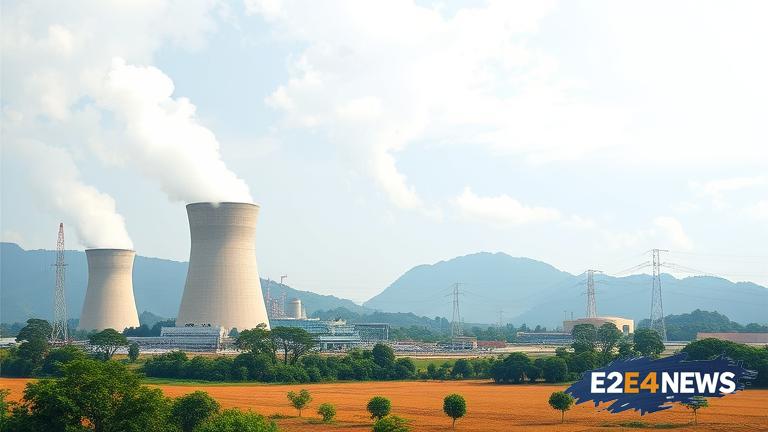Vietnam has been actively pursuing the development of its first nuclear power plants, with the aim of reducing its reliance on fossil fuels and mitigating the impacts of climate change. The country’s energy demands have been increasing rapidly, driven by its growing economy and population. In response, the Vietnamese government has set ambitious targets to increase the share of renewable energy in its energy mix, including nuclear power. International experts have thrown their support behind Vietnam’s nuclear power ambitions, citing the country’s strong regulatory framework and commitment to safety. The experts believe that nuclear power can play a crucial role in helping Vietnam achieve its energy and environmental goals. Vietnam’s first nuclear power plant is expected to be operational by 2028, with a total capacity of 1,000 MW. The plant will be built using Russian technology and will be located in the central province of Ninh Thuan. The project has been welcomed by local residents, who believe that it will bring economic benefits and create jobs. However, some environmental groups have raised concerns about the potential risks associated with nuclear power, including the disposal of radioactive waste. The Vietnamese government has assured that it will take all necessary measures to ensure the safe operation of the plant and protect the environment. The International Atomic Energy Agency (IAEA) has also provided technical assistance to Vietnam to help it develop its nuclear power program. The IAEA has praised Vietnam’s commitment to safety and its efforts to develop a robust regulatory framework. Vietnam’s nuclear power ambitions are part of its broader strategy to reduce its greenhouse gas emissions and transition to a low-carbon economy. The country has set a target to reduce its emissions by 8% by 2030, compared to business-as-usual levels. Vietnam’s energy sector is currently dominated by coal and gas, but the government wants to increase the share of renewable energy to 20% by 2030. Nuclear power is expected to play a key role in helping Vietnam achieve this target. The development of Vietnam’s nuclear power program is also expected to have significant economic benefits, including the creation of jobs and the stimulation of local economies. The project is expected to attract significant investment, both from domestic and international sources. The Vietnamese government has established a number of policies and incentives to support the development of the nuclear power sector, including tax breaks and subsidies for companies involved in the project. Despite the challenges and risks associated with nuclear power, Vietnam is committed to making it a key part of its energy mix. The country believes that nuclear power can provide a reliable and sustainable source of energy, while also helping to reduce its greenhouse gas emissions. International experts believe that Vietnam’s nuclear power program has the potential to be a model for other countries in the region, which are also seeking to develop their own nuclear power sectors. The success of Vietnam’s nuclear power program will depend on a number of factors, including the ability of the government to ensure the safe operation of the plants and the development of a robust regulatory framework. However, with the support of international experts and the commitment of the Vietnamese government, the prospects for Vietnam’s nuclear power sector look promising.
